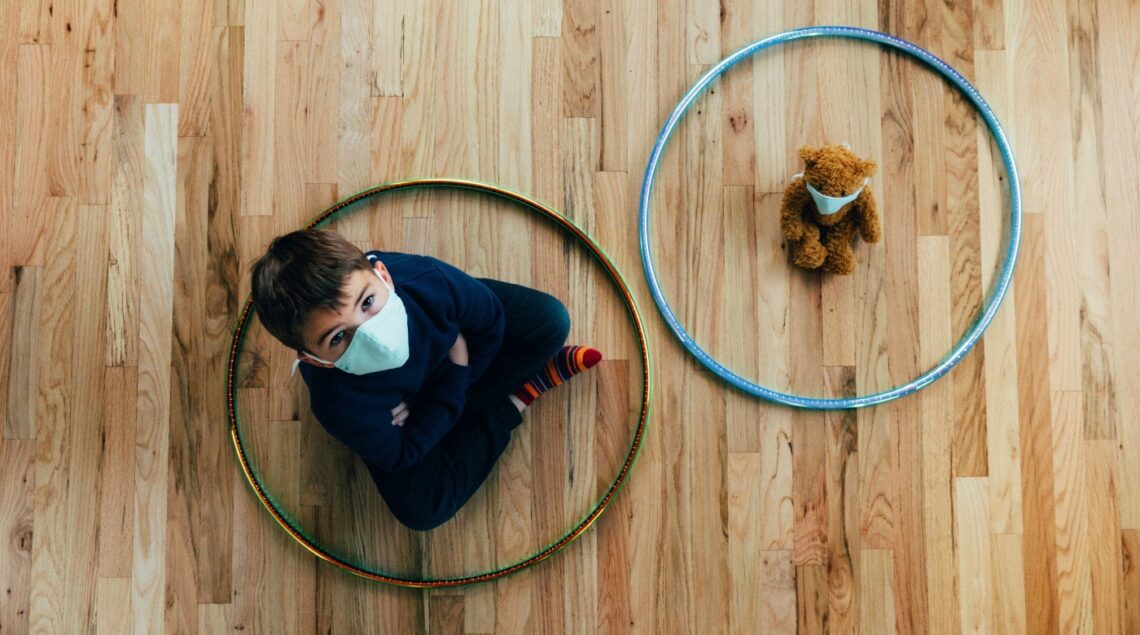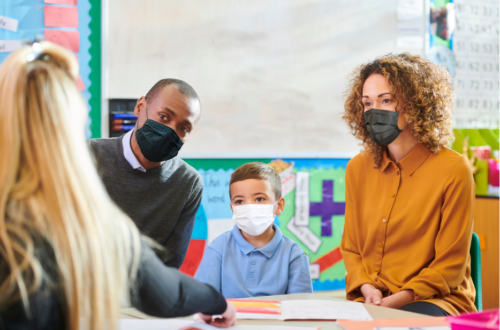
Keep Kids Connected by Going Back to Basics
By Terri Barnes
As vaccinations roll out, health experts still urge families to stay the course and remain vigilant about COVID safety measures. After nearly a year of disrupted learning, research shows students are affected socially and emotionally as well as academically. For some military-connected students, all this upheaval comes on top of a move or deployment. Not much about this year has been easy. Connections—to friends, family, and feelings—can make the difference for students in the home stretch of the pandemic. The good news is that keeping kids connected doesn’t have to be complicated. It can be as simple as going back to basics.
Go Outside and Play
With so much of life happening via computer screen, it’s easy to get stuck inside all day. For healthy breaks, encourage kids to spend a few minutes outdoors each day—with a friend or a sibling, if possible. The combination of fresh air, a change of scenery, a little exercise and companionship—as simple as that sounds—can lift low spirits and break through boredom.
Pull out the warm coats and mittens if necessary. Amy Bushatz, army spouse and coauthor of Stories Around the Table: Laughter, Wisdom, and Strength in Military Life, made a commitment in 2017 to spend at least twenty minutes outside every day, no matter what—and she lives in Alaska.
“It’s never been more important to spend time outside,” says Amy who blogs and podcasts at Humans Outside. “It doesn’t have to be fancy. It doesn’t have to be complicated. It just has to happen.”
When possible, take indoor activities outdoors. To help her daughter make friends after a pandemic-season move, Air Force spouse Stacy Allsbrook-Huisman, coauthor of Seasons of My Military Student: Practical Ideas for Parents and Teachers, created a backyard book club. Stacy wrote discussion questions to help break the ice. The girls read and discussed a book while socially distancing on the back patio.
Turn off the TV
The pandemic has offered families more time together, but it’s easy to slip into too much screen time. With everyone doing work and school from home, evenings might turn into extended work time, further isolating family members in the same house. Make a commitment to turn off screens, even the television, before dinner a few nights a week to talk or play a game together.
Corie Weathers, army spouse and author of Sacred Spaces: My Journey to the Heart of Military Marriage, experienced deployment in the midst of the pandemic. To connect with her two growing sons, Corie renewed her commitment to spend unplugged time with them. One night, for example, they gathered around the backyard fire pit to roast hotdogs for dinner.
Have a Cookie
Even simple activities have power to connect: baking cookies, sharing a pot of tea, playing cards. It’s not about the game or the cookies but the conversations that happen in those moments. Kids miss being with their friends, but time spent with parents and siblings is better than a substitute. It’s a healthy necessity that strengthens family bonds.
Create connections the old-fashioned way, by writing letters. Students can correspond with grandparents, cousins, or friends from other assignments. Social worker and professor Dr. Carolyn Curtis, writing for Edutopia, suggests connecting students from other states or other schools via epals.com.
Don’t give up on virtual connections either, even if the novelty of playing virtual games has worn thin. Seeing the faces of friends and family still makes a difference, so change it up a little. Dial back the technology and try a real activity together. Share a simple recipe with a friend or a group of friends and make plans to cook together by video. Set up a screen at the kitchen table and have dinner with grandparents or good friends.
Talk About It
When it comes to getting back to basics, connecting with friends and family is key. It’s also important for students to connect with their feelings about the experiences of the past few months, both good and bad. Discussing their feelings will also help them realize how they’ve grown and what they’ve learned. Here are some questions to consider when talking to kids about their experiences:
- What are you most looking forward to that you have missed for the past few months?
- Was there anything you give up during the pandemic that you didn’t miss that much?
- Has this experience changed the way you think or feel about going to school?
- What did you miss about going to school that you didn’t think you would miss?
- What did you learn or discover during the pandemic that you want to remember?
It might also help kids to make a list, write in a journal, or create a vision board for their hopes for the coming year. These questions and activities could provide openings to talk about how they feel, how they’ve changed or grown in this experience.
Playing outside, eating together, talking to each other. It’s pretty back-to-basics stuff, but for a complex problem like getting through a pandemic, the simple things might be the best. Right up there with cookies.
Terri Barnes is a veteran military spouse, journalist, and author of Spouse Calls: Messages From a Military Life. As senior editor for Elva Resa Publishing, Terri was the lead editor of Seasons of My Military Student: Practical Ideas for Parents and Teachers.
More about supporting students in pandemic circumstances:



